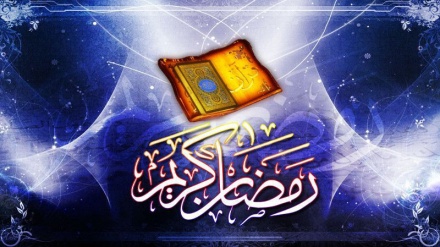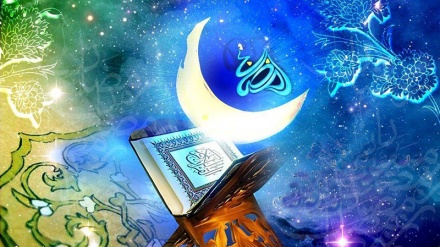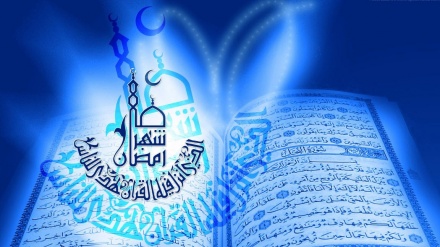Blessed Month of Ramadhan
Welcome to the 15th episode of the series “Blessed Month of Ramadhan”.
As the Prophet of Islam was instructed to invite people to the divine religion of Islam, Muslims are also duty-bound to invite others to the truth of Islam. So, a Muslim should show the torch of guidance to others. In the enlightening view of Holy Qur’an, the most important hurdle against the growth of mankind is lack of an appropriate and divine upbringing, and the best avenue for rescue and prosperity of mankind is to have an insightful religious upbringing.
Today, we are in the middle of the blessed month of Ramadhan. We are indeed basking in God’s mercy and forgiveness. The 15th day of fasting Ramadhan is the birthday of Imam Hasan Mojtaba (AS), the elder grandson and 2nd Infallible Heir of Prophet Mohammad (blessings of God upon him and his progeny).
Imam Hasan (AS) was brought up in an environment filled with amity, chastity, and kindness, alongside a father like the Infallible Commander of the Faithful Imam Ali ibn Abi Taleb (AS), and a mother like the Prophet’s Immaculate Daughter, Hazrat Fatemah Zahra (peace upon her). The Prophet made every effort to familiarize his grandsons, that is, Imam Hasan and Imam Husain (peace upon them) with the heavenly teachings. Imam Hassan (AS) spoke eloquently from childhood, and was a picture of piety. He not only recited ayahs of Holy Qur’an in an attractive manner, but fully knew the meanings of its ayahs, and acted in accordance with them. He was brought up in a house, in which the Word of God was continuously heard; in a house in which his infallible father was the first collector of Holy Qur’an between two covers as “Mus-haf”. Imam Hasan (AS) watched the late midnight prayers of his Infallible Mother, Hazrat Fatemah (peace upon her), and molded his life in accordance with the devout and sincere worship of God Almighty. From his Infallible Father, Imam Ali (AS), he learned the lessons of courage, magnanimity, gentlemanliness, sense of social justice, prudence and righteousness. These teachings prepared him for his days of hardship after the martyrdom of his father when he became caliph and had to face the rebellion of the seditious governor of Syria, Mu’awiya ibn Abu Sufyan, who through deceit seized the caliphate from the Prophet’s Household.
The other characteristic trait of Imam Hasan (AS), in addition to his patience, was his generosity. He was extremely generous to the poor and needy. e He He at
He shared his meals with the poor, and was not complacent. He always prioritized others and treated people with respect and modesty. Imam Hasan (AS) put emphasis on making the best of the spiritual atmosphere of the blessed month of Ramadhan. He noted: God Almighty has presented the blessed month of Ramadhan as a racing field for His servants; some persons overtake others in worship of God in this month, while a group of others suffer losses as the result of their negligence and indifference.
As is clear, Imam Hasan (AS) likens the blessed month of Ramadhan to a racing track, so that we would realize the importance of the appropriate usage of the opportunities in this month of fasting when the floodgates of divine mercy are wide open, and should make every effort to become deserving of God’s blessings and forgiveness.
Ayahs 107 and 108 of Surat-al-Yusuf of the Qur’an state:
“Do they feel secure from being overtaken by a blanket punishment from Allah, or being overtaken by the Hour, suddenly, while they are unaware?
Say (O Prophet to mankind), ‘This is my way. I summon to Allah with insight – I and he who follows me. Immaculate is Allah, and I am not one of the polytheists.”
In Ayah 107 God warns the polytheists, the atheists and all disbelievers of a terrible punishment for their misconstrued sense of being secure from affliction. In the next ayah God commands the Prophet to show the righteous path to the disbelievers, so that maybe they would come to their senses; overcome disbelief and recognize the straight and unwavering path towards paradise.
There is only one righteous path, to which the Prophets of God used to invite people of their eras. As the Almighty’s Last and Greatest Messenger with the universal message of Islam, Prophet Mohammad (blessings of God upon him and his progeny) is the supreme symbol of monotheism and the guide towards the path of paradise, from which those who created religions such as Judaism, Christianity, Buddhism, Hinduism, etc., have deviated.
The other point in this ayah is that invitation to this path, which is the path of God, is the result of insight and awareness, and not by force or on the basis of prejudice and in pursuit of materialistic interests. This ayah also notes that the invitation to the divine religion of Islam is carried out by the Prophet and his true followers. This means that as the Prophet of Islam was instructed to invite people to Islam, Muslims are also duty-bound to invite others to Islam.
The Iranian Gnostic, Khwajah Abdullah Ansari notes: Insight is a factor that frees you from bafflement and leads you to the righteous path, and ultimately lowers negligence by making the seekers of truth aware and vigilant.
These days, one of the common traditions of Muslims is invitation of others to Iftar or the breaking of the day’s fast a little after dusk. This is part of a Muslim’s generosity. In the month of Ramadhan, God invites Muslims to be more generous and spend part of their incomes by inviting others to join them for Iftar. One of the beautiful traditions of this blessed month is to hold iftar and to share one’s food with others. The Prophet of Islam said invite those who fast, to Iftar, even if it is only a few dates and a sip of water.
Arranging Iftar for others leads to forgiveness of one’s sins. Many a hadith emphasize inviting others to Iftar. The Prophet of God has considered honouring guests to ensure the health and freshness of the society. The Prophet has also reportedly said: As long as my Ummah enjoys amity and harmony with each other; avoiding Haram; hosting guests; performing prayers; and paying Zakat, they will flourish in goodness and health.
Also, Islam has put emphasis on eating with the family members, servants, and orphans. Hosting guests is highly recommended. The first step is to honor and endear the guest. One of the measures that can be taken to this end is for the host to prepare good and healthy food for the guest. During a meal, it is important not to extensively stretch one’s hands for grabbing dishes which are further apart from us. The rights of guests should be observed in regard to the dishes which are available on the tablecloth. The host should continue to sit at the table until all guests have finished their meal, otherwise, the guests would feel embarrassed in the absence of their host, and may leave the table, while hungry.
MR/AS/SS


